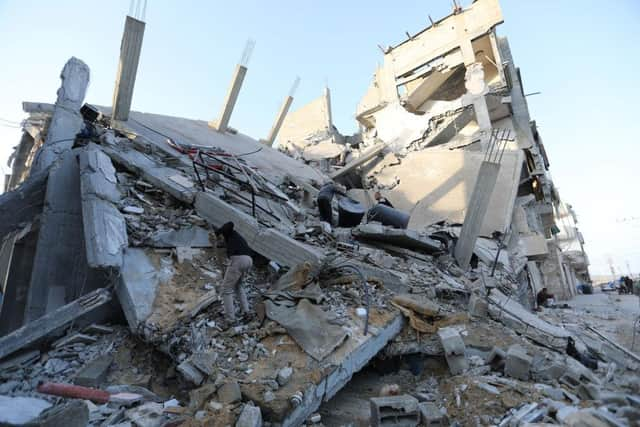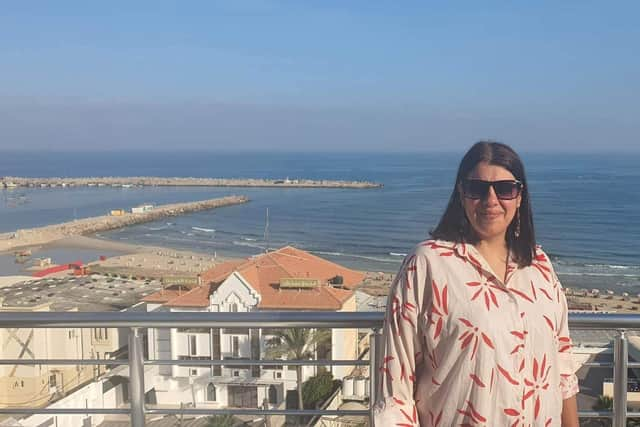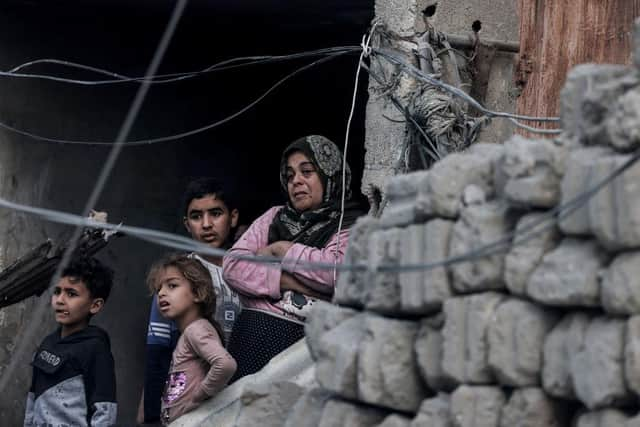Gaza-Israel six months on: 'I believed Gaza would be bombed, but not to this degree', says aid worker as the conflict reaches the six month mark
When Palestinian aid worker Riham Jafari wakes up every morning, she checks her phone for news from her colleagues operating on the ground in Gaza.
"Their messages on WhatsApp each morning are: ‘We are alive. We are still alive’," she says. “These are the messages we receive from our colleagues, from our workers, from our partners.
Advertisement
Hide AdAdvertisement
Hide Ad"We feel very sad and powerless that we cannot do anything for them.”


An advocacy and communications coordinator for charity ActionAid based in the West Bank, Ms Jafari travelled to Gaza frequently before the war.
Now, six months to the day since the conflict began, the places she remembers as “beautiful” beachside neighbourhoods in Gaza City have been destroyed: decimated by retaliatory bombing raids following the 7 October Hamas attacks on Israel which killed 1,000 people.
She recalls the day that Hamas militants stormed Israeli border fences – and braced herself for the repercussions.
"I was on my way to my office, and when I saw the situation, I believed Gaza would be bombed, but not to this degree,” she says. “We thought there will be war like other previous wars, we have seen this before, but we did not imagine that this war would extend for six months, that it would take this number of victims and cause this huge damage for infrastructure – or that hunger and famine would be used as a weapon of war.”


According to the most recent figures from Gaza's Hamas-controlled Ministry of Health, more than 31,000 Palestinians have been killed since the retaliatory attacks began, and over 73,000 more wounded in the ongoing bombardment.
Meanwhile, a total of 1.7m people of Gaza’s two million population have been displaced from their homes and forced to live in refugee camps and increasingly, temporary structures such as tents and under tarpaulins. Humanitarian organisations have warned of mass starvation in the population due to blocks on aid accessing Gaza, sparking international calls for a ceasefire.
In Rafah, near the Egyptian border, where more than half of Gaza’s population has settled following heavy bombardments on other parts of the territory, Israel is still believed to be mulling a ground assault, following days of air strikes on what it says are Hamas targets in the city.
Advertisement
Hide AdAdvertisement
Hide AdUS officials have warned that a ground operation in Gaza would be a “mistake”, stressing that civilians trapped in the city have nowhere else to go, while the city also acts as the main gateway for humanitarian aid delivery, via Egypt.


A recent US-led initiative to air drop essential supplies and also build a floating pier in Gaza to allow aid access – while not without its own controversies – initially offered a glimmer of hope for starving residents.
Then, earlier this week, a convoy carrying seven aid workers from the food aid charity World Central Kitchen was hit by an Israeli air strike, killing all of those inside – and forcing the suspension of the organisation’s operations.
Israel has taken responsibility for what it called an “unintentional” strike, saying it was a “grave mistake”.
However, Ms Jafari says the attack has taken the fear among her Gazan colleagues to a new level.


“They know that there is no safe place in Gaza,” she says, pointing to the attack on WCK, which occurred despite the charity informing the Israeli military of its coordinates. WCK’s director has since claimed the attack was targeted, something Israel denies.
"So all the time they are worried and they are scared because they believe that there is no safe place,” she says. “They expect this killing at every moment.”
To compound the situation, most aid workers in Gaza are themselves refugees.
Advertisement
Hide AdAdvertisement
Hide Ad"Imagine that after you were living for years, in a good house, with all infrastructure, you suddenly become displaced in a few minutes,” Ms Jafari says.
